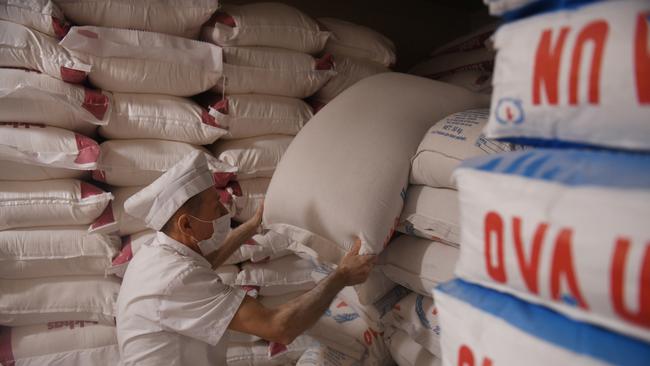Investor interest in food-focused funds soars amid price spike
One of Australia’s few food and agriculture-focused ETFs is expected to have almost doubled in size in just three months.

The Russian invasion of Ukraine has worsened already-high global food prices – and brought with it renewed investor interest in funds anchored in major agricultural businesses.
One of the few local exchange-traded funds specialising in the sector is BetaShares’s Global Agriculture ETF, which this week is expected to cross over $100m in funds for the first time.
It is a dramatic increase for a fund that, as of December, had only $56m in funds under management. Between the start of the year and late February, funds under management grew by $15m to $71m.
But it is since the Kremlin’s invasion of Ukraine that inflows and a surge in the value of its investments have seen the Global Agriculture ETF record a 40 per cent growth in assets under management. Since February 18, funds have grown to $98.6m.
The ETF invests in some of the world’s largest agricultural companies – and those in associated industries including Canadian fertiliser business Nutrien. Its shares on the Toronto Stock Exchange have risen more than 48 per cent since the start of the year.
The American multinational food business Archer-Daniels-Midland, another holding, has seen its share price on the New York Stock Exchange rise around 37 per cent in that time.
BetaShares chief executive Alex Vynokur said: “The prospect of higher global inflation and the geopolitical tension resulting from Russia’s invasion of Ukraine has made the Global Agriculture Companies ETF topical for many investors.
“Recent demand for our Global Agriculture ETF has been driven by two factors.
“The tragic events in Ukraine have disrupted the global supply for wheat and fertilisers, forcing prices higher for these goods while the prospect of increasing global inflation has seen investors seek out exposures to consumer staples which tend to have greater scope to pass on price rises,” he said.
The rapid escalation of the conflict in Ukraine – and the prospect of a lengthy war – has alarmed the Food and Agriculture Organisation, part of the United Nations, which on Friday issues a note warning that Russia and Ukraine were “among the most important producers of agricultural commodities in the world”.
“Both countries are net exporters of agricultural products, and they both play leading supply roles in global markets of foodstuffs and fertilisers, where exportable supplies are often concentrated in a handful of countries. This concentration could expose these markets to increased vulnerability to shocks and volatility,” it reads.
“In 2021, either the (Russia) or Ukraine (or both) ranked among the top three global exporters of wheat, maize, rapeseed, sunflower seeds and sunflower oil, while (Russia) also stood as the world’s top exporter of nitrogen fertilisers, the second leading supplier of potassium fertilisers and the third largest exporter of phosphorous fertilisers.”
Not all food and agriculture-focused ETFs are finding success, however.
VanEck’s Future of Food ETF, which was established in November and is only open to overseas investors, has reported a 9 per cent decline in net asset valuations for the three months to the end of February. It invests just $US2.3m ($3.06m).
Mr Vynokur, however, said that while food and agriculture-focused ETFs had a strong short-term outlook, “the longer-term story is just as compelling”. “Propelled by a rising global population and growing incomes, (the Global Agriculture ETF) may present a phenomenal investment opportunity for investors who take a long-term view,” he said.
In a note on Friday, Rabobank’s head of commodities market research Carlos Mera wrote that the global wheat stock forecast for this financial year would remain tight by historical standards.
“Looking to 2022/23, Rabobank notes limitations to world production increases, due to sky-high fertiliser and input prices, limited area for acreage expansion, and extremely strong alternative crop margins, particularly oilseeds,” Mr Mera wrote.




To join the conversation, please log in. Don't have an account? Register
Join the conversation, you are commenting as Logout